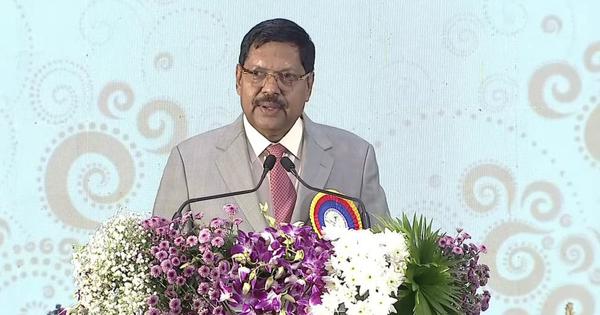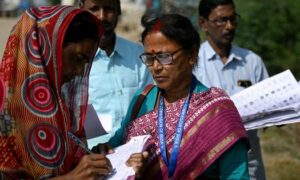
Chief Justice BR Gavai on Sunday reiterated his support for excluding the creamy layer from benefiting from reservations meant for Scheduled Castes.
Speaking at an event in Andhra Pradesh’s Mangalagiri, Gavai said that when it comes to reservations, persons from privileged backgrounds, such as the children of Indian Administrative Service officials, should not be equated with those from the economically disadvantaged and marginalised communities, such as the children of agricultural labourers.
This denies “equality of opportunity”, Gavai said.
He referred to the 1992 Indra Sawhney versus Union of India judgement that introduced the concept of creamy layer for Other Backward Classes and stated that he believes the same principle should apply to Scheduled Castes.
The creamy layer refers to the wealthier and more advanced members within a group that is eligible for affirmative action benefits.
“Judges are not supposed to normally justify their judgements,” Gavai said, adding that his views have been widely debated and criticised.
The chief justice stated that “equality of opportunity does not mean equal opportunity to all citizens”, arguing that without recognising socio-economic disparities, equal opportunity “will lead to nothing else but more inequalities”.
On August 1, 2024, a seven-judge Constitution bench, which included Gavai, a Supreme Court justice at the time, ruled that the sub-classification of Scheduled Castes and Scheduled Tribes is permissible for providing reservations in government jobs and education based on empirical data.
The bench, in a 6:1 majority verdict, overruled the court’s 2004 judgement, which held that Scheduled Castes formed a homogenous group and hence could not be subdivided into categories.
Further, four of the seven judges including Gavai called for identifying the creamy layer among the Scheduled Castes and Scheduled Tribes categories so that they could be removed from the reservation matrix.
The judges had said that the state should formulate a policy to identify the creamy layer among the two groups as this was the “only way to gain true equality”.
However, as the application of the creamy layer was not one of the questions before the bench, the suggestions of the four judges lacked legal enforceability.
On August 9, 2024, Union minister Ashwini Vaishnaw clarified that there is no provision in the Constitution for applying the creamy layer concept to reservations for Scheduled Castes and Scheduled Tribes, suggesting that the government would not act on the Supreme Court’s non-binding recommendation.
The Union Cabinet had discussed the matter in detail and the government was “committed to the Constitution of Babasaheb Ambedkar”, Vaishnaw had said.
The August 2024 ruling had sparked criticism from the Bharatiya Janata Party and the Congress.
Congress chief Mallikarjun Kharge had criticised the court’s suggestion relating to the creamy layer and urged the Union government to introduce a legislation “to nullify” that part of the ruling.
BJP MPs, after meeting Prime Minister Narendra Modi, were assured that the government would not act on the recommendation, reaffirming its commitment to the welfare of these communities.
Also read:
📰 Crime Today News is proudly sponsored by DRYFRUIT & CO – A Brand by eFabby Global LLC
Design & Developed by Yes Mom Hosting





